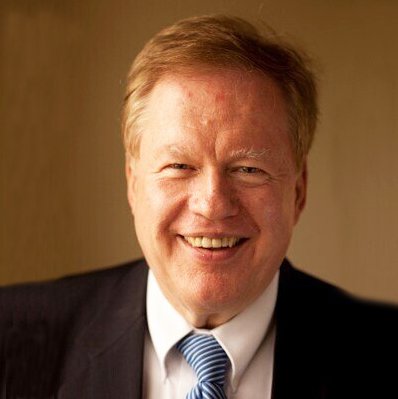DPRK Human Rights Situation Since the COVID Pandemic
- Interview
- February 24, 2023

- Robert KING
- Former U.S. Special Envoy for North Korean Human Rights Issues

Ambassador Robert King, the former U.S. Special Envoy for North Korean Human Rights Issues, shares his insights about the current living conditions in the DPRK and the DPRK’s attitude toward U.S. efforts to engage in negotiations. In spite of the pandemic that has further limited foreign access to information, he highlights the importance of satellite imagery in identifying the ongoing human rights violation of Kim Jong Un regime. Ambassador King argues that while the U.S. Government has been making consistent efforts to bring North Korea to the negotiating table, the DPRK human rights problem is still locked in a stalemate due to the North’s unwillingness to engage.
I. Current Human Rights Situation in the DPRK Since COVID
ㆍCOVID pandemic has induced further restrictions of access to information, freedom to travel, and food imports into North Korea. So while not much new information is available, the DPRK’s human rights situation "is serious” and "does not look encouraging.”
ㆍGiven all these limits, satellite imagery "has been very helpful” for the United States to identify the current living conditions in the DPRK. As a former Special Envoy for the DPRK Human Rights Issues, Ambassador King has used this imagery to "show publicly to indicate what the North Koreans were doing.”
II. Sanctions against the DPRK and Humanitarian Assistance
ㆍThe international community, including the United States, has sanctioned "the kind of goods that will contribute to the nuclear program but no sanction humanitarian products that North Korea would like to import.” Yet the North Korean regime "is willing to take the humanitarian food supplies and sell them rather than provide them to their people so they can have additional resources to use for their missile and nuclear programs. This makes providing humanitarian aid to the DPRK extremely difficult.
ㆍWith regards to engaging the DPRK, U.S. has "had continuous efforts on human rights even though [the U.S.] has not had a special envoy for the last several years.” However, North Korea’s preoccupation with regime stability and its unwillingness to come out to the negotiating table is what complicates these efforts. ■
■ Robert King_served as special envoy for North Korea human rights issues at the U.S. Department of State. He was nominated by President Barack Obama, confirmed by the U.S. Senate, and served in that position from November 2009 to January 2017. Ambassador King led U.S. efforts to press North Korea for progress on its human rights, U.S. humanitarian work in North Korea, and the treatment of U.S. citizens being held in the North. He represented the United States in international organizations dealing with these issues. Earlier, Dr. King was staff director of the House Foreign Affairs Committee under Chairmen Tom Lantos and Howard Berman and prior to that was a senior professional staff member of the committee (1993–2009). He was concurrently chief of staff to Representative Tom Lantos (1983–2009). In the 1970s, as a White House fellow, he was a member of the National Security Council staff working with Dr. Zbigniew Brzezinski in the Jimmy Carter administration. He was also assistant director of research and senior analyst at Radio Free Europe in Munich Germany (1970–1977). Dr. King holds a Ph.D. in international relations from the Fletcher School of Law and Diplomacy and a B.A. in political science from Brigham Young University. An adjunct professor, he has taught courses in international relations and U.S. foreign policy in a number of graduate and undergraduate programs. He was awarded the Knight’s Cross Order of Merit by the president of the Republic of Hungary.
■ Typeset by Jisoo Park, Research Assistant
For inquiries: 02 2277 1683 (ext. 208) | jspark@eai.or.kr